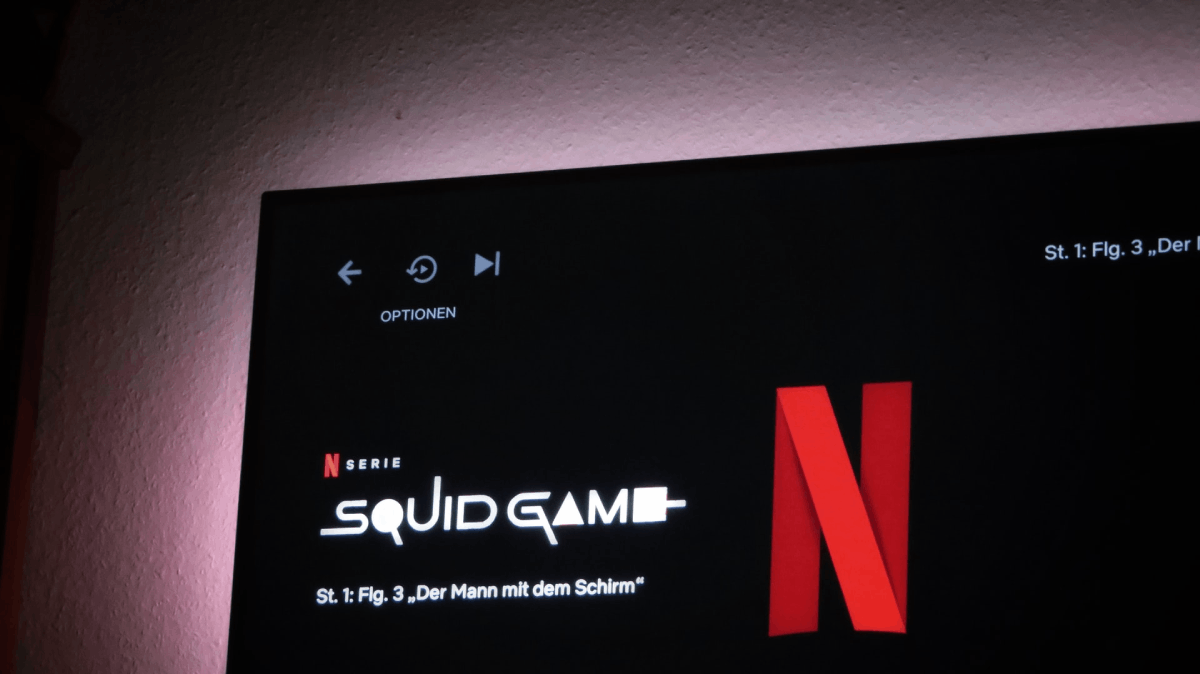Netflix’s 2021 thriller series “Squid Game” has become one of the most popular series in the world. The violence and heart wrenching betrayals portrayed in the show set it apart from other K-dramas on Netflix.
Expert assessment has revealed that more than 111 million different households around the world have watched the South Korean series. The show’s bitter portrayal of people pushed to despair by poverty and circumstance has rekindled interest in a forgotten aspect of the battle royale genre: class struggle.
Although this facet of dystopian fiction has always been present, even in franchises like “The Hunger Games” and “The Purge,” recent adaptations have ditched it in favor of drama and gore.
Discover movies and television shows that aren’t “Squid Game” that explores the destructiveness of class conflict through deadly games.
BE WARNED, THERE ARE SPOILERS FOR THESE SHOWS IN THIS ARTICLE
-
The Hunt
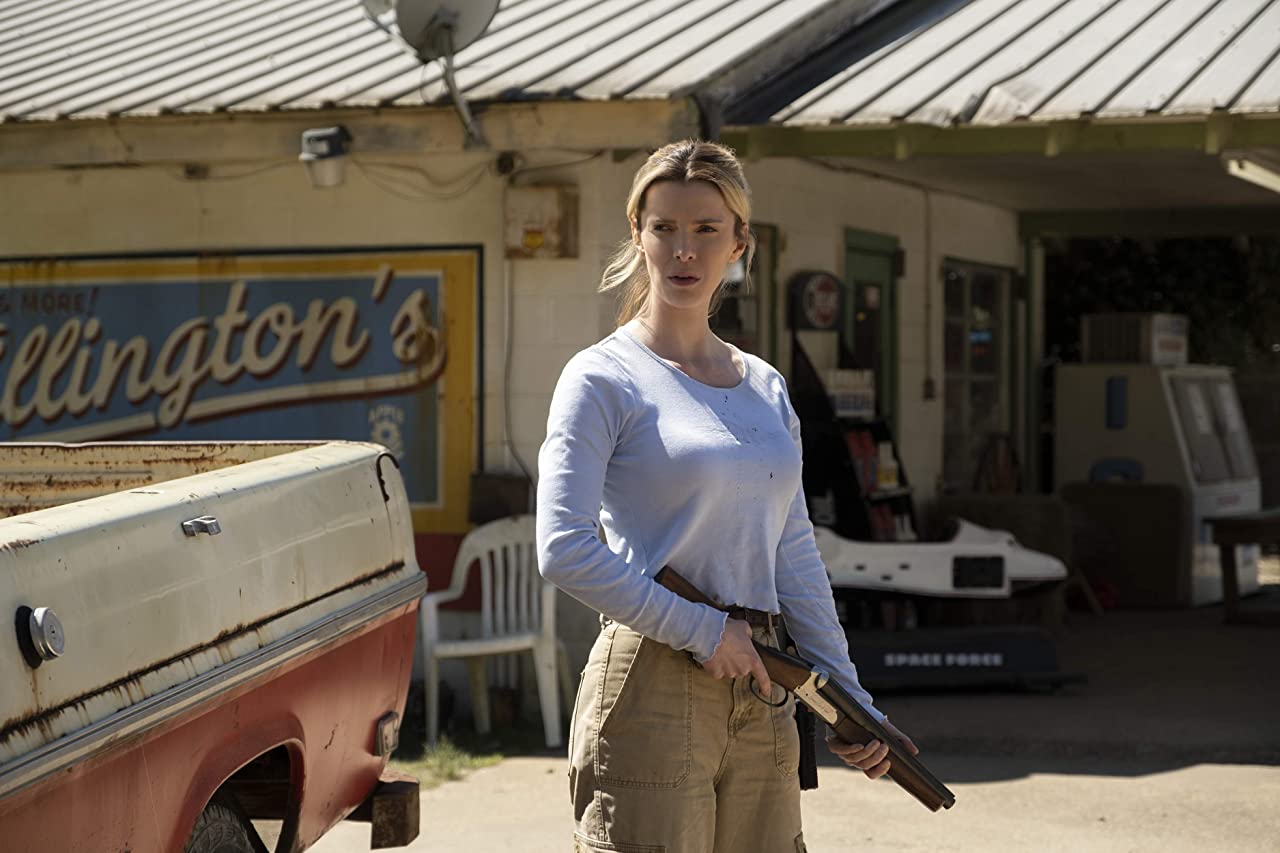
Released in 2020 just at the beginning of the pandemic, “The Hunt” begins with a more realistic approach to the battle royale genre.
The captive victims of the game, including tough-as-nails veteran Crystal, all manage to escape from the confines of the game area. However, the entire area itself is set in war-torn Croatia, highlighting that there are dangers outside the organizers of the titular hunt. The movie also shows that the organizers must bribe and coerce many people to even allow their despicable pastime to happen.
The Class Conflict:
At its core, the titular hunt began as a joke that backfired on a group of extremely wealthy people. When a screenshot of one of their chats is leaked, the reputations and lives of these wealthy people were ruined. Despite still being obscenely rich after their lives were “ruined,” they seek revenge on those involved by actually hosting the deadly battle royale. This just highlights how insanely petty these privileged individuals can get.
-
Black Mirror: Shut Up and Dance
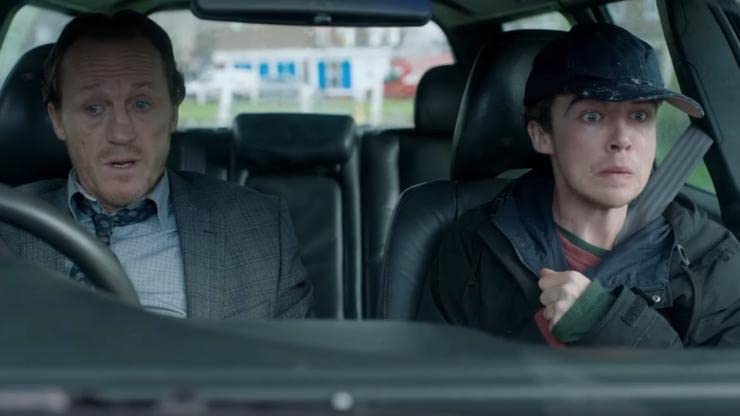
Netflix’s “Black Mirror” pushed the boundaries of speculative fiction and launched a new genre of technological thrillers. But the scariest episodes tend to be the one that hit closest to home and feature mundane technology.
“Shut Up and Dance” is an episode in its third season, featuring anonymous blackmailers manipulating different people to perform a series of increasingly dangerous tasks. The blackmailers are faceless and use technology that is present today to coerce their victims. These people come from all walks of life, though the show focuses on restaurant busboy Kenny and middle-class employee Hector.
The Class Conflict:
It becomes clear that the blackmailers are only able to target these people because they have done things that they thought they could get away with. The episode highlights how many of these people thought they could get away with adultery, racism and worse because of the anonymity the internet provides.
Not even Kenny is as innocent as he appears and by the end of the episode, viewers will be very conflicted about their feelings on the episode.
-
Ready or Not
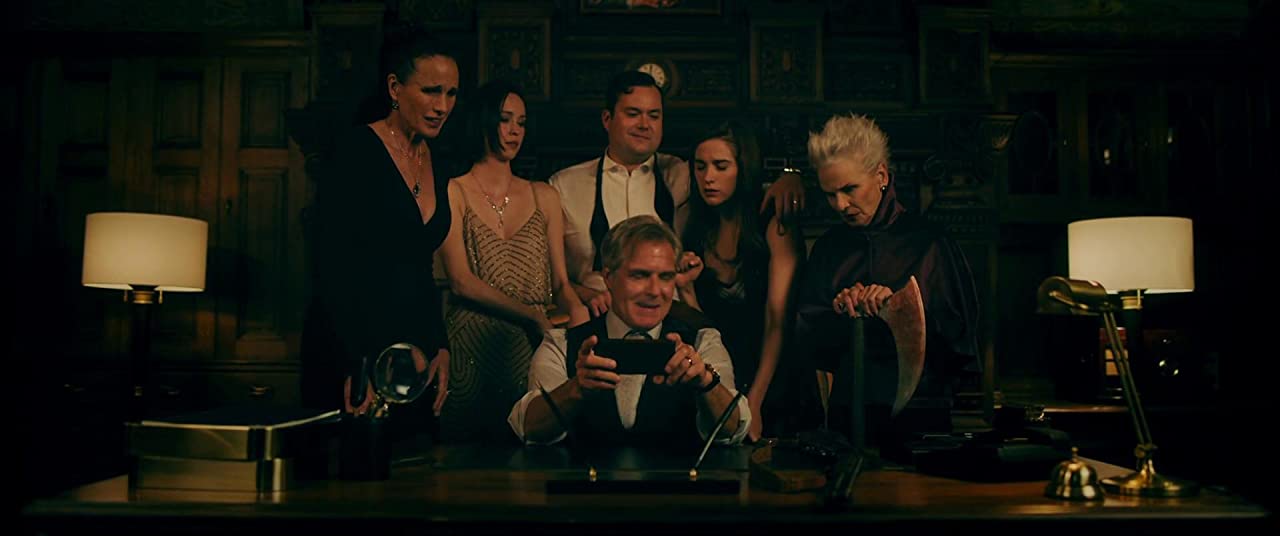
An amusing mixture of dark comedy and bloody horror, “Ready or Not” follows the wedding night of orphan Grace and Daniel, one of the sons of the illustrious le Domas family. Daniel’s family became unbelievably rich, thanks to their family’s board and party game company. However, Grace discovers that the family has a fatal wedding night tradition. Whenever one of the le Domas clan marries, the entire family must play a game of hide and seek, with the stakes being life and death.
The Class Conflict:
It is revealed very early on that the le Domas clan only became rich because their ancestor made a literal deal with the devil. In exchange for their insane wealth, they must play the fatal game of hide and seek, sacrificing the unfortunate loser to the devil before dawn. Some characters despise the arrangement, whereas others relish the wealth it gives them without worrying about the bloody price.
It paints a grim reminder that the rich can sometimes ignore the deaths of the poor, so long as they can continue to live in opulence.
-
Alice in Borderland
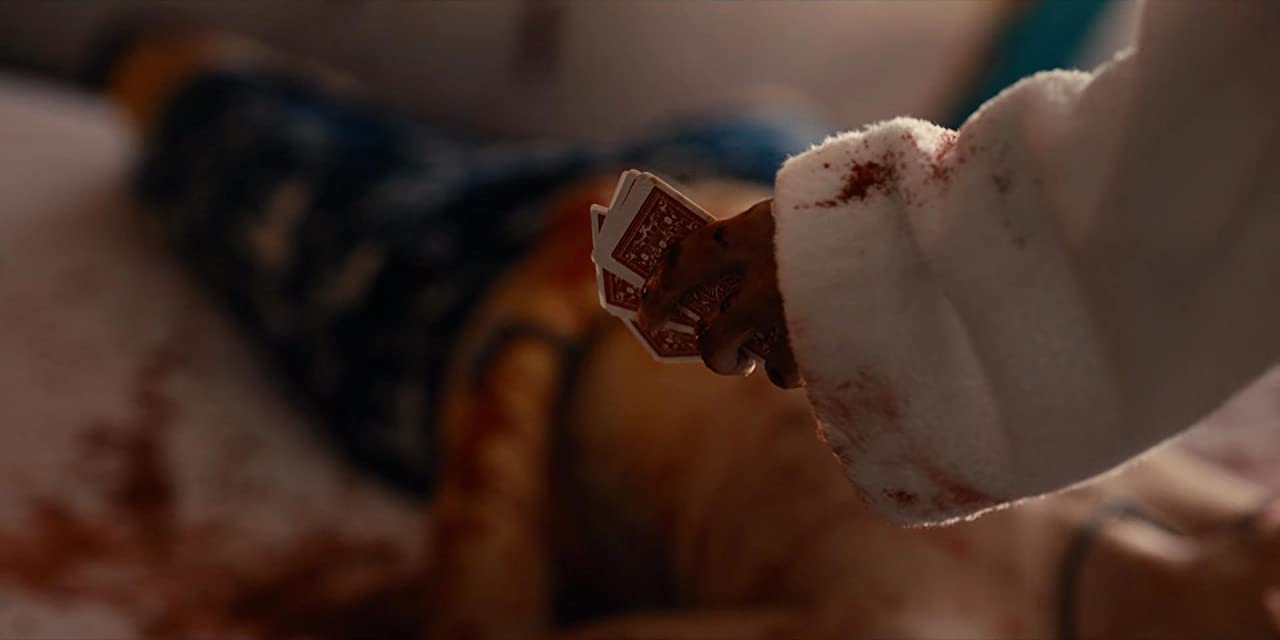
Japanese media codified the battle royale genre and they are still perfecting it today. One of the most recent offerings from Japan is the science fiction thriller “Alice in Borderland.”
The show features a group deposited in a seemingly abandoned Tokyo. They must participate in vicious games throughout the empty metropolis.
The nature and difficulty of the games are determined by playing cards, with the numbers indicating lethality and the suit determining what the activity is. The diminishing and changing cast of characters are all at the mercy of the game’s unseen directors.
The Class Conflict:
Although not apparently obvious, “Alice in Borderland” subtly shows what it’s like to live in modern day Tokyo. The contestants are all alone, a feeling that is increasingly common in the metropolis. They must fight for their lives with the prize being their survival, a sentiment that is shared by working class people in Japan who only manage to scrape by.
The unseen games directors are insanely powerful and possess advanced technology, both of which they could use to help people. Instead, these autocrats use their power to torment the contestants.
-
Battle Royale
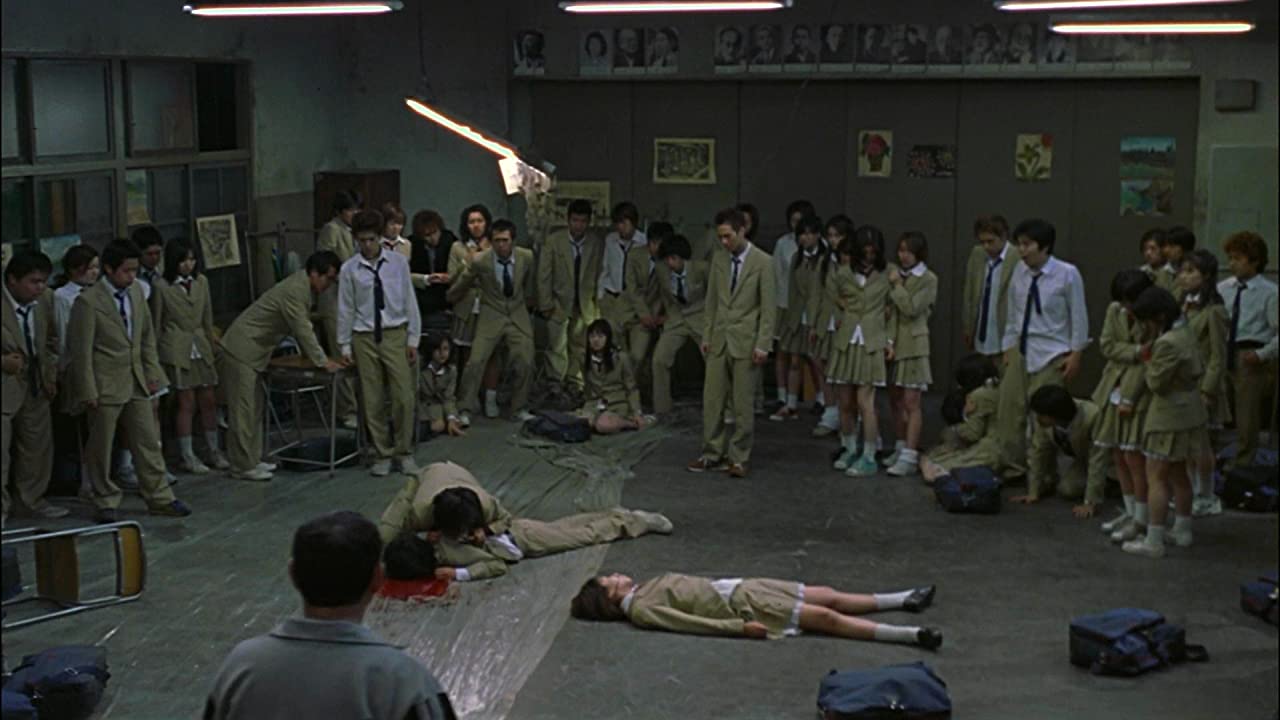
The namesake of the entire genre and undoubtedly the codifier for many of the tropes involved. Set in a fascist Japan, “Battle Royale” features a ruthless government that kidnaps a random class of high school students. These students are told to compete to the death as a showcase of force and control over the populace.
The movie explores how barbaric these teenagers can become when pushed to the edge and the monstrosity that such situations bring out of people.
The Class Conflict:
Essentially, “Battle Royale” formulated the message that in such settings, the powerful will instigate conflict within the ranks of the oppressed. This prevents the oppressed from organizing their efforts and turning on their alleged masters. In the movie, this is exactly how the protagonists manage to beat the games, by forming alliances with each other rather than fighting.
The battle royale genre has gone through many changes, from featuring teenagers to showcasing people from all walks of life. However, the very premise of the genre presents that there is a powerful force making these things happen. No matter what it represents: a fascist government, perverse capitalists or petty billionaires is up to the specific show. But one thing is certain: the odds are never in the favor of the players.
What's Your Reaction?
P. Torres' favorite animals are dragons, despite the lack of tangible evidence of their existence. When reading books or watching movies, anything with dragons in them gets top priority.

